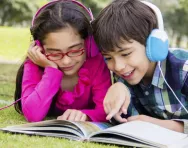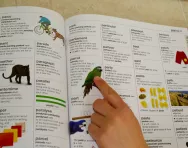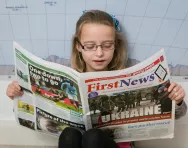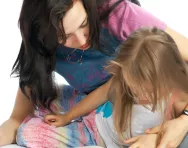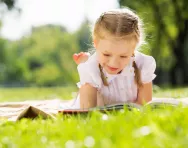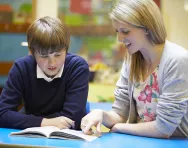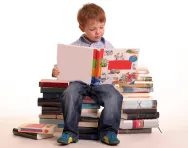Important update from TheSchoolRun
For the past 13 years, TheSchoolRun has been run by a small team of mums working from home, dedicated to providing quality educational resources to primary school parents. Unfortunately, rising supplier costs and falling revenue have made it impossible for us to continue operating, and we’ve had to make the difficult decision to close. The good news: We’ve arranged for another educational provider to take over many of our resources. These will be hosted on a new portal, where the content will be updated and expanded to support your child’s learning.
What this means for subscribers:
- Your subscription is still active, and for now, you can keep using the website as normal — just log in with your usual details to access all our articles and resources*.
- In a few months, all resources will move to the new portal. You’ll continue to have access there until your subscription ends. We’ll send you full details nearer the time.
- As a thank you for your support, we’ll also be sending you 16 primary school eBooks (worth £108.84) to download and keep.
A few changes to be aware of:
- The Learning Journey weekly email has ended, but your child’s plan will still be updated on your dashboard each Monday. Just log in to see the recommended worksheets.
- The 11+ weekly emails have now ended. We sent you all the remaining emails in the series at the end of March — please check your inbox (and spam folder) if you haven’t seen them. You can also follow the full programme here: 11+ Learning Journey.
If you have any questions, please contact us at [email protected]. Thank you for being part of our journey it’s been a privilege to support your family’s learning.
*If you need to reset your password, it will still work as usual. Please check your spam folder if the reset email doesn’t appear in your inbox.
14 things to do in the library (apart from borrowing books)

How long has it been since you visited your local library? Chances are it’s been a while; in the 12 months from March 2015, only 33 per cent of adults had used their library, with many of us preferring to buy books for ourselves and our kids online.
But your local library isn’t just a place to borrow books; there’s a wide range of children’s activities that use libraries as a base, and the summer holiday – their busiest period – is the ideal time to try them.

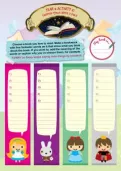
Claim A FREE Book Reviews Activity Pack!
- A huge collection of creative writing & reading comprehension resources
- Explore texts, deepen understanding, share opinions
- For Year 1 to Year 6
Try some of these ideas for size.
1. Challenge your kids with a library scavenger hunt
This is a great familiarisation exercise to help kids find their way around their local library. Draw up a list of different types of book for your child to find – for example, an information book, a picture book, a book by an author with the same initials as them – and award points for each one they track down.
You can also devise a scavenger hunt for younger children who can’t yet read by giving them pictures of things to find, like a book, a computer, a magazine, a CD, and so on.
2. Hire an audio book
Most libraries have a good selection of audio books to hire, including popular children’s titles: great for long journeys over the summer, or for chilling out at bedtime. Generally, you need to download an app to your phone, tablet or computer; you then sign in with your library card number, and the book is delivered to your device. It's automatically deleted when the loan period ends, so you won’t run up fines for late returns.
3. The Summer Reading Challenge
The Summer Reading Challenge runs in the vast majority of libraries in England, Wales and Scotland, and is aimed at children aged four to 11. Kids are challenged to read six books over the summer holiday, with rewards such as certificates and stickers up for grabs. It’s free to join at your local library, and there’s a new fun theme every year.
4. Join a children's book club
Many libraries run book clubs just for children, with regular meetings to encourage young readers to make new friends and discover a range of books, from classics to the contemporary. Some libraries have their own book club scheme, but lots follow the Reading Agency’s Chatterbooks programme, for children aged four to 12: around 9,000 kids belong to a club.
5. Borrow e-books
E-readers can help to get reluctant readers interested in books, and are handy for summer holidays when you’re limited on luggage space, and libraries now loan e-books, including children’s titles. As with audio books, you’ll need to download an app and log in with your library card. You can then choose your books (and often decide how long you want to keep them for, after which they’ll be deleted from your device).
6. Enrol in the Children’s University
The Children’s University is an initiative for five- to 14-year-olds that encourages them to learn new skills. Children are issued with a passport and collect stamps for every hour spent on educational activities, culminating with a ceremony. Some schools and libraries run local Children’s Universities, or you can sign up online. Your child can then earn stamps towards their award for taking part in activities at your local library.
7. Read a magazine
As well as e-books, some libraries have e-editions of newspapers and magazines that you can borrow. It’s well worth looking out for children’s publications like The Week Junior, First News and The Phoenix.
8. Ask for book recommendations
Whether your child has finished all the books in their favourite series and doesn’t know what to try next, or they have yet to find a book that engages them, your children’s librarian is the best person to ask for recommendations. They’ll be able to use their expertise to pick the book that grabs your child as much as Harry Potter did, or the one that finally captures their imagination and turns them into a reader.
9. Listen to a story
Story time sessions are popular events in many public libraries, and while they’re usually aimed at pre-schoolers, younger school children can normally join in during the holidays. Often, there are activities such as colouring or singing to accompany the stories of the week.
10. Get help with homework
Libraries are fantastic sources of facts for homework projects, and most have good stocks of children’s information books – and space to sit and study. Many also have an online reference library that you can use at home, giving your child access to a large and reliable body of information.
11. Play games
Some libraries run board games clubs for kids: a great way to get those who’d usually spend an entire weekend playing video games out of the house and enjoying some face-to-face contact with other children. Some focus particularly on chess, while others offer a selection of board games to help your child pass the time and meet new people.
12. Catch a movie
Save a small fortune on cinema tickets by hiring a DVD from your local library. They offer everything from new releases to classic TV series, music DVDs and boxsets, and while there’s usually a small fee, many libraries waive it for children’s films. Some libraries also run children’s film clubs, screening popular movies and encouraging kids to discuss what they’ve watched.
13. Become a writer
Could your child be the next JK Rowling? Library-run creative writing workshops are a good place for them to discover their inner writer. There’s often a book-inspired theme, along with lots of lively discussion and sharing of ideas, and support from authors or library staff. Some libraries also run writing contests to encourage children to explore their creative side.
14. Earn an Arts Award
The Arts Award is a scheme for young people aged up to 25, helping them explore their artistic side and develop their skills and knowledge. There are five different levels, starting with Discover, which is suitable for Key Stage 1. Children take on challenges, participate in arts activities, experience arts events and share their skills with others to earn their awards. They can take part in the Arts Award in a variety of locations, including some libraries. Find an Arts Award centre in your area online.

